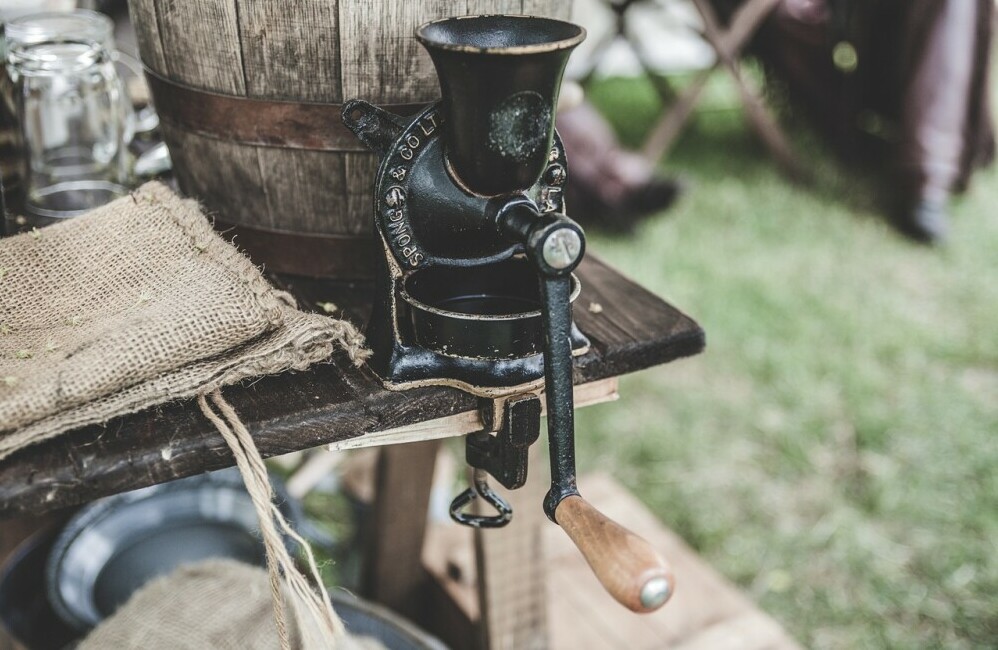This article contains affiliate links. For more information, please read my Affliate Disclosure
The Timeless Art of Grinding Wheat:
If your anything like me I love the way of culinary traditions, few practices are as rewarding and wholesome as the age-old art of grinding wheat to make flour. This time-honored technique not only connects us to our agricultural roots but also offers a myriad of benefits that span from nutritional excellence to environmental stewardship.
Introduction to the Tradition of Grinding Wheat
I’m all about changing the way I do things and that’s by starting to grind my own wheat to produce flour which has been practiced through human history. From ancient civilizations to modern households, the rhythmic motion of milling grains has been a symbol of sustenance and craftsmanship. This tradition honors the essence of whole foods, where every kernel tells a story of growth, nourishment and transformation into the fundamental ingredient of countless culinary delights.
Nutritional Advantages: Preserving Vitamins and Minerals
One of the foremost benefits of grinding your own wheat is the preservation of vital nutrients. Whole wheat kernels encompass a treasure trove of vitamins, minerals and fiber, including B vitamins, iron, magnesium and antioxidants. Unlike commercially processed flours that often undergo refining however when we grind wheat at home it retains the integrity of these nutrients, ensuring that our flour is a powerhouse of healthful goodness.
Freshness Factor: Comparing Taste and Quality with Store-Bought Flour
Im all about the freshness of flour and by grinding your own wheat we are directly impacting its flavor and baking properties. Freshly ground wheat flour boasts a robust taste and aroma that simply cannot be replicated by store-bought alternatives. The oils in the wheat germ lend a subtle richness to your baked goods, enhancing the depth and character. Say goodbye to bland and uninspiring flour – grinding your own wheat opens a world of culinary possibilities infused with freshness and flavor.
Customization of the Grind for Diverse Baking Needs
One size does not fit all in the world of flour. Grinding your own wheat empowers you to customise the grind to suit your specific baking needs. Whether you desire a fine texture for delicate pastries or a coarser consistency for rustic bread, you have the freedom to adjust the milling process accordingly. This versatility allows for precision in recipes and unlocks creative avenues for culinary experimentation.
Economic Benefits: Cost-Effectiveness Over Time
While investing in a grain mill or grinder it may seem like an initial outlay, however the long-term savings and value are significant. Bulk purchases of whole grains are often more economical than buying pre-packaged flour repeatedly. By grinding your own wheat, you not only save money but also gain access to fresher and higher-quality flour, enhancing the overall value of your culinary endeavors. I purchase Australian Organic Wheat Grains from a local supplier near me and also with this grain I sprout them to add them to salads.
Less Processing, More Health: The Reduction of Preservatives and Additives
Commercially produced flours often undergo extensive processing, including refining and the addition of preservatives and additives. Grinding wheat at home eliminates the need for such interventions, ensuring a purer and more wholesome product. By taking control of the milling process, you prioritise health and well-being, free from unnecessary chemicals and artificial substances.
Food Security: Independence from Commercial Flour Supply Fluctuations
As you were all aware in Covid times we all dealt with supply chain disruptions or fluctuating market conditions, so with the ability to grind your own wheat it provides us with a sense of food security and self-reliance. We are not beholden to commercial flour availability or quality concerns. Instead, we forge a direct connection to our food source, fostering resilience and confidence in our kitchen endeavors.
The Satisfaction of Self-Sufficiency and Learning a Valuable Skill
Grinding wheat is more than a culinary task; it’s a journey of self-sufficiency and skill-building. I love the pioneer ways I only wish I had started sooner however life was dealing me other things at the time however now I engage in this time-honored practice that instills a sense of pride and accomplishment for me as I transform whole grains into nourishing flour. The good thing as well you only need to grind what you need you don’t need to grind all the grains at once then find you need to store the flour. I have found grinding my own wheat to flour has given me an opportunity to connect with tradition, learn about food production, and cultivate a deeper appreciation for the ingredients that fuel our daily lives.
Ecological Impact: Less Packaging Waste and Transportation Emissions
When you choose to grind our own wheat, it aligns us with eco-friendly practices as we are reducing packaging waste and minimizing transportation emissions. we are also sourcing whole grains in bulk and milling them at home, we are contributing to a more sustainable food system. I find this conscious decision not only benefits the environment but also promotes a greener and more responsible approach to food consumption.
The tradition of grinding wheat embodies a holistic approach to food that encompasses nutrition, flavor, sustainability and self-reliance. Whether you’re a seasoned baker or a curious novice, exploring the art of milling wheat opens doors to a world of culinary delights and wholesome goodness. Embrace this time-tested practice, savor the rewards it brings, and nurture a deeper connection to the food on your table.
Happy grinding
Faith xx

